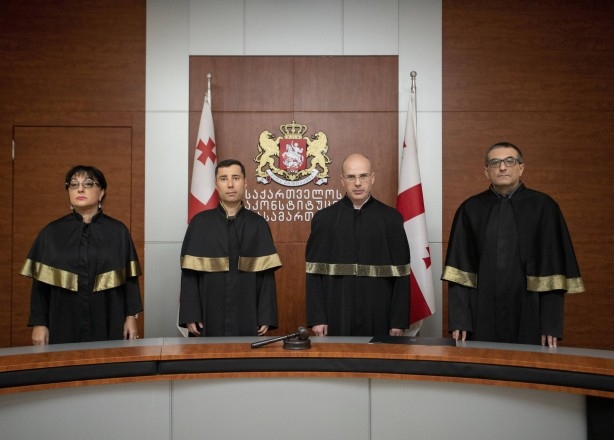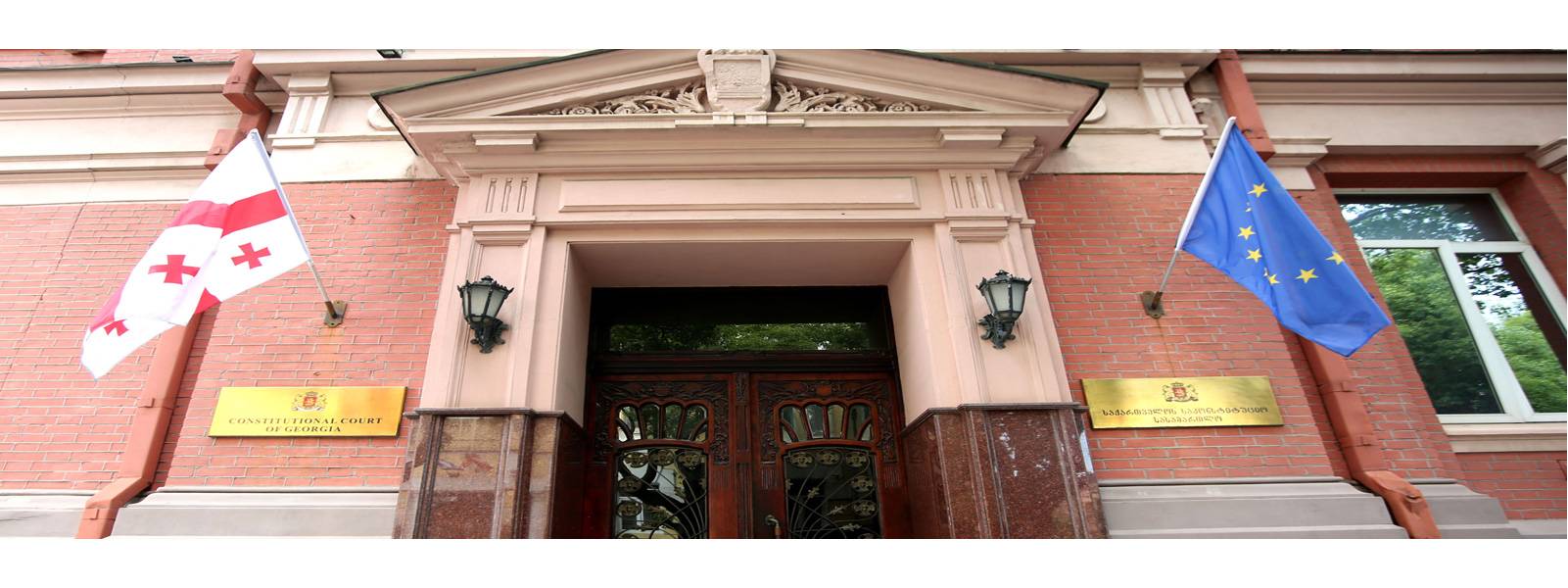News
Constitutional Court of Georgia does not satisfy the Constitutional Claims №1424 and №1490 („Lasha Janibegashvili vs. the Parliament of Georgia “)
On November 4, 2022 the Constitutional Court of Georgia did not satisfy constitutional claims №1424 and №1490 (“Lasha Janibegashvili vs. the Parliament of Georgia”).
The complainant disputed the norm which determines lawyer’s compulsory membership of the Georgian Bar Association. The complainant noted that defining compulsory membership of one specific association for the lawyer excludes formation of other association by the latter, which grants a privileged status to the Georgian Bar Association. The complainant added that request for the compulsory membership limits the constitutional right for the unhindered exercise of lawyer’s right and lawyer’s self-organization in an unjustified manner.
As defined by the respondent, lawyer’s activity as well as the activity of Georgian Bars’ Association in pursuant with acting legislation as well as the content of their activity does not represent an entrepreneurial activity, which excludes interference with the constitutional right banning free entrepreneurship and monopolist activity on the basis of the disputed norm.
Besides this, the rule for compulsory membership of the Bar Association does not foresee interference with each lawyer’s individual as well as institutional independence, being protected with the framing of the sentence 3 of the paragraph 3 of the Article 31 of the Constitution of Georgia. Setting compulsory membership of the Bar Association itself aims at regulating all basic issues related to lawyer’s activity, norms of professional ethics and lawyer’s profession on the basis of integral rules, which represents a significant public interest.
The Constitutional Court in the frame of presented case by taking into account relevant legislation and the role, stated objectives of the content of lawyer/lawyers’ association in the legal state and its functions noted that an entrepreneurial activity is not carried out from their side. The court focused attention on the circumstance that since monopolies may exist only in the frame of entrepreneurial activity, the activity of lawyers’ association may be deemed as a monopoly of the entrepreneurial activity, similar to as Lawyers’ Association as monopolist. Subsequently, the Court ruled that no interference with the constitutional right banning free entrepreneurship and monopolist activity is observed on the basis of the disputed norm (apart from the cases permitted by the law).
The Constitutional Court also defined the sphere protected with the sentence 3 of the paragraph 3 of the Article 31 of the Constitution of Georgia. In the part of unhindered exercise of lawyer’s rights, the Constitutional Court indicated that on the basis of the disputed norm no interference with the above-mentioned right aspect is occurring. In particular, necessary guarantees for unhindered exercising of the lawyer’s rights takes effect from granting the lawyer’s status, whereas a disputed norm concerns compulsory membership of the Bar Association, consequently leading to settling the relations arisen before this phase. In relation to the constitutional right of lawyer’s self-organization, the Court ruled that not the right of individual lawyer to plan and lead one’s own lawyers activity according to one’s own attitudes, wishes and priorities but the lawyers collective right of the entire lawyers’ corps to independently organize and manage lawyer’s profession and activities.
In view of the abovementioned, in the frame of the presented case the complainant did not dispute that Bar Association represented by him/her was limited to self-regulation right or its components with disputed norm, but by appealing the disputed norm the complainant actually appealed on the fact that by compulsory membership of the Bar Association, his/her individual interests are infringed, which goes beyond the scope of the foregoing constitutional right.
The Court also indicated that compulsory membership of the Bar Association set on the basis of the disputed norm does not limits lawyer’s constitutional right to self-organization, yet on the contrary, it supports its realization into practice, as without lawyer’s compulsory participation it would have been impossible to achieve those objectives served by the lawyer’s right to self-organization. Besides this, the Court focused on the circumstance that the disputed norm did not prevent the complainant and in general the lawyer, in parallel to membership of the Bar Association, in view of their interests, to establish professional association of any profile and carry out a relevant activity.
Correspondingly, the Constitutional Court ruled that on the basis of the disputed norm no interference occurs with the sentence 3 of the paragraph 3 of the Article 31 of the Constitution of Georgia and therefore, constitutional claims shall not be satisfied.
Subject of Dispute: Constitutionality of the words from the Paragraph 2 of the Article 1 of the Law of Georgia on Lawyers “is a member of Georgian Bar Association” in relevance with the sentences first and second of the Paragraph 4 of the Article 26 and sentence 3 of the paragraph 3 of the Article 31 of the Constitution of Georgia.



